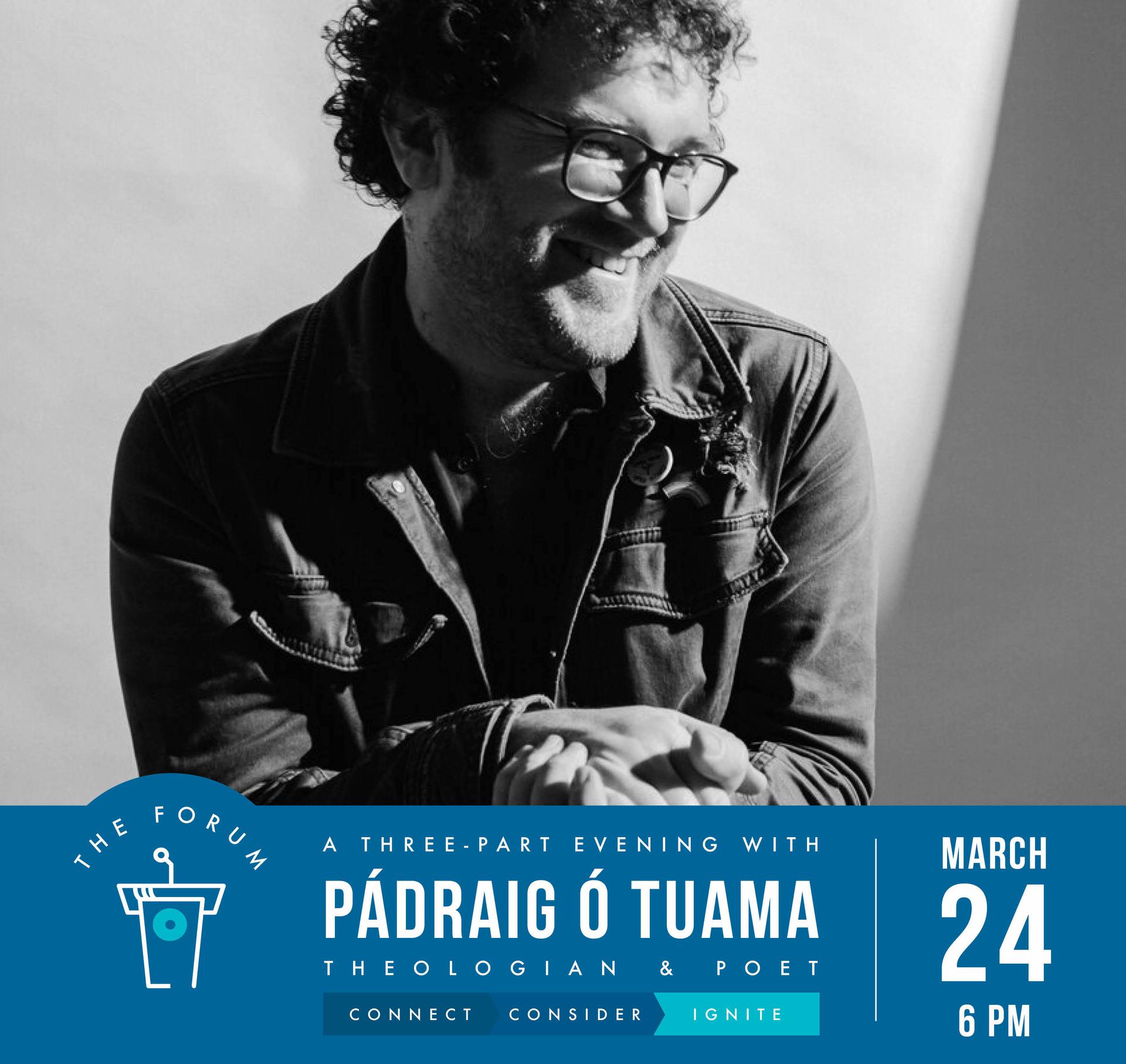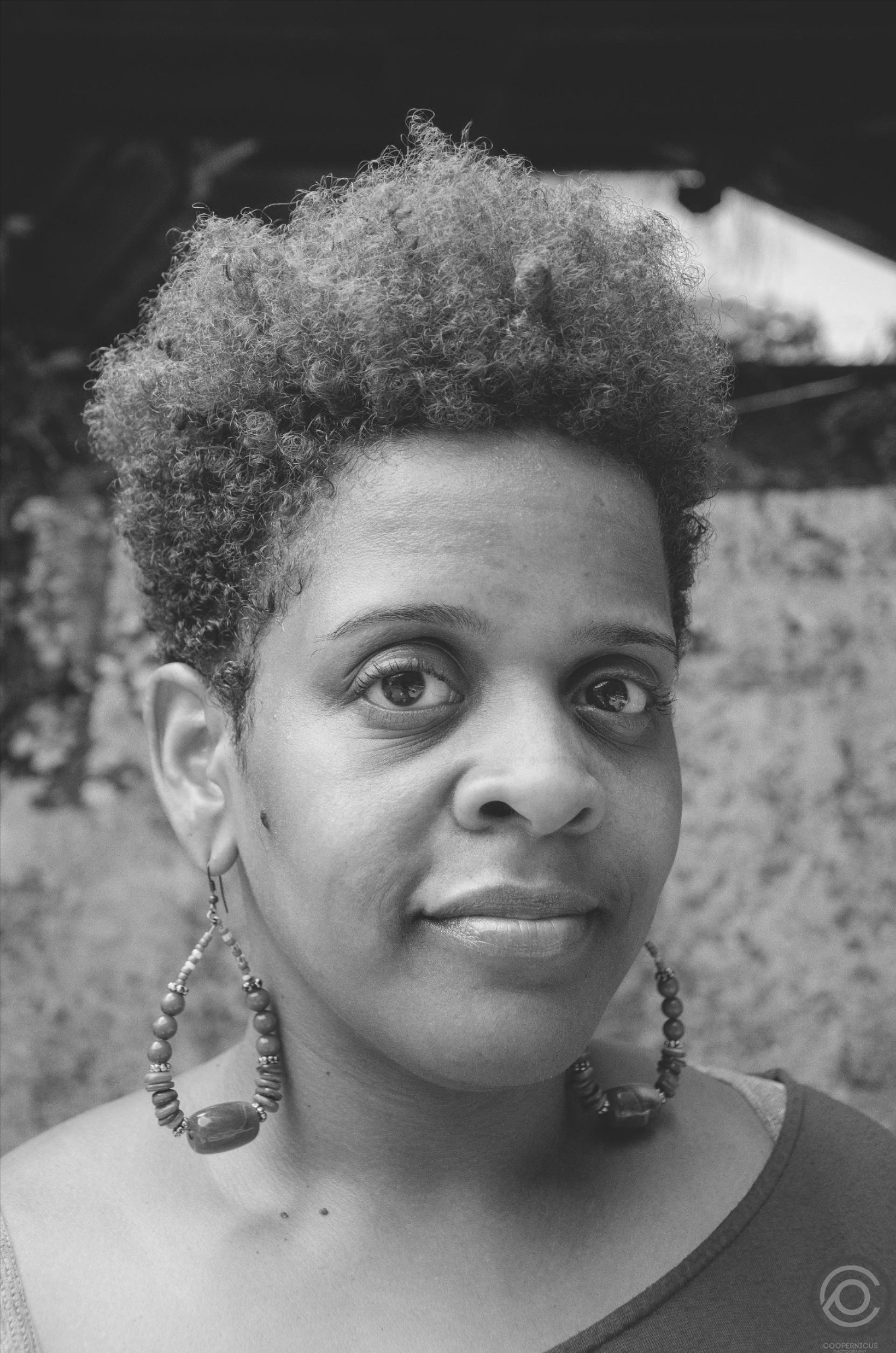The Brief – February
|
FEBRUARY 2021 CONTENT A Moment for Civic Reflection Wisdom Wednesday Launches with Scientist and Educator Robert Corbin, PhD Our March Forum, featuring Theologian and Poet Pádraig Ó Tuama SenseMaker® Series Update 5 Questions with TV Writer and Playwright Stacey Rose Welcome to the first issue of Word to the Wise, a brief from The Charlotte Center. Enjoy! A Moment for Civic Reflection HOW TO LOVE A COUNTRY is a theme The Charlotte Center will explore throughout the year. Inspiration comes from the book title by Richard Blanco, an inaugural poet and the featured speaker at our debut event. The words of another inaugural poet, Amanda Gorman, resonate when considering this year’s theme. Of the many moving passages from her stunning and powerful poem “The Hill We Climb,” these lines are particularly striking: If we're to live up to our own time, then victory won't lie in the blade, but in all the bridges we've made. Gorman invites us to ask what it means to repair the past. Amid our current observance of Black History Month, the questions multiply. These questions intensify further when recalling recent and distant histories of Native Americans, Asian Americans, women, and a spectrum of immigrant and marginalized communities. Loving a country with a complicated and unreconciled past does not come easy.
Reflecting on the breadth of American history, consider the verse above and ponder these questions.
We would love to hear your thoughts, if you’d like to share them here. join us for WISDOM WEDNESDAYS A conversation series of free inquiry into the soul of the matter.
What is truth? How do we know when we have found it? Can we look past our own perceptions to discover truth or will it always be illusory, contingent on our own biases?
Please join us for a rich conversation with scientist, philosopher, and educator Dr. Robert Corbin as he and Angela discuss their own searches for truth and invite you into the conversation. $5 registration 

Introducing The Forum 
We’re thrilled to share that The Forum, our signature speaker & conversation series, launches virtually on Wednesday, March 24th at 6:00 PM – 7: 30 PM. The Forum connects the humanities to civic concerns. The first third of the event is relationship building among the audience; the middle third is a discussion with a prominent speaker in which the conversation ends with the speaker posing a question to the audience for consideration; the final third is the audience discussing the question and igniting ideas.
Our first Forum speaker is Pádraig Ó Tuama, the remarkable Irish theologian, poet, and mediator. Pádraig Ó Tuama’s work centers around themes of language, power, conflict and religion. He is the author of four books of poetry and prose: Daily Prayer with the Corrymeela Community, In the Shelter, Sorry for your Troubles, and Readings from the Books of Exile. He presents the podcast Poetry Unbound with On Being Studios, where he also has responsibilities in bringing art and theology into public and civic life. From 2014-2019 he was the leader of the Corrymeela Community, Ireland’s oldest peace and reconciliation community. We will talk to him from Belfast about how story and language has helped him address sectarian conflict and can help us strengthen democracy. Here is Padraig on the TED Stage.
SAVE THE DATE An e-invitation will soon follow. SenseMaker® Series Update
Our SenseMaker® Series and partnership with the City of Charlotte officially kicks off this week! The SenseMaker® technology provides the ability to combine storytelling and statistics. It’s like a digital ‘story-catcher’ that takes personal narratives and weaves them together to form a picture of a larger community’s story. At our Forum event in May, we will introduce our community leaders and share the first patterns emerging from six communities, within Charlotte's Corridors of Opportunity. 5 Questions • Stacey Rose An interview with the television writer, playwright, and now co-founder of the Queen City Minneapolis and New York City on the stage and the screen
BY VALAIDA FULLWOOD

Stacey Rose is a Charlotte-based, award-winning, nationally produced playwright. Her work celebrates and explores Blackness, Black identity, body politics, and the dilemma of life as the "other”.
Earning wide recognition for her work, Stacey has held a range of fellowships and residencies, including those with the Arts & Science Council, The Dramatists Guild, The Playwrights' Center, Sundance Theatre Lab, The Goodman Theatre, The Civilians, and Tofte Lake Center. She is recipient of a 2019 Virginia B. Toulmin Foundation Women's Commissioning Grant in partnership with Rattlestick Playwrights Theatre and an Alfred P. Sloan Foundation commission in partnership with Manhattan Theatre Club.
She is currently a staff writer for the Fox TV series 9-1-1. Stacey, along with director Martin Damien Wilkins, co-founded the Queen City New Play Initiative (QCNPI) to support local and southern playwrights in the creation of new work for the stage.
The Charlotte Center’s 2021 theme is how to love a country. What mindset and approach do you take to love our country? I’m starting with, perhaps, the hardest question.
Wow! That is the hardest one.
Being frank, our country in the literal sense is very hard to love. In terms of having a constitution that wasn’t written to include me, really. In terms of having systems of white supremacy instilled that were not built for my success or my son’s success or my brother’s success, etc., it is hard as a Black person in America to love this country.
But what I do love is that this is my family’s homeland. We put a lot into making this land what it is. Specifically, my family, my slave ancestors are from Anson County. So quite literally this land is the land where my family carried out that sacrifice.
I love what our contribution has been to the culture. I love the ability to have the space to define, for myself, my relationship with this country, which I do over and over again, and it’s been a long road. There was so much that was given up and sacrificed by our family. We have a blood investment here. There is a blood investment in this country. I honor that by doing the work I do, by uplifting the voices I uplift, and by seeking truth in the stories I tell and in the stories I support.
It’s the legacy. I love the Black legacy in America. I think Black history is American history, and I can find a path to loving this country through that.
When you imagine Charlotte at its best, what comes to mind?
The best time—and I talked about it last night on panel—that I had in Charlotte was at “the Afro Am” (Afro-American Cultural Center, precursor of The Gantt), when I was a young artist there. There was this meeting of the minds that Charlotte makes possible. At its best, those minds are listening to one another and building a future not for one sector of Charlotte but for all Charlotteans.
We are a very wealthy city in many ways. The best that Charlotte can be is a convergence of the many ways in which we are wealthy for the good of the whole—that’s quite literally financial wealth, creative wealth, which we have a host of, and spiritual wealth. There’s so much richness here, when there is a coming together.
I remember a play we did, where there was a coming together, like those four statues at Trade and Tryon. This convergence of many different paths, you see it in how many people are coming here. They are coming here because they sense there is an ability to start anew, an ability to drive toward a dream that they have for themselves, whatever that dream may be. When I think about the best of us, it’s all of us working together toward that for everyone.
Where is your happy place and why?
[After a roar of laughter] My literal physical happy place is in my bed under a heated blanket under a weighted blanket. It’s a burrito. I make myself a burrito. Like today, I decided I was working in bed, period. I looked out of the window and said ‘nope, I’m not doing this’. I actually got quite a lot done in my burrito today [laughter]. Now tomorrow will be different, I’ll have to get up. But today, that’s my happy place.
Also, just being here in the city with my family in close proximity makes me happy. I haven’t been home, consistently, in so many years that being able to eat out with my mom when I want to, or have her come here, or go over there is great. If it were a person, my “happy place” would be my mom.
What historical figure inspires you most?
Toni Morrison. [I mention the day, February 18th, is Morrison’s birthday.] Ohhh, that’s right! It’s her birthday and Audre Lorde’s. (Toni Morrison) is on my watch face!
I like everything she is and everything she wrote. But she was also a single mom who had to make the hard choices I had to make, in order to make her path in writing. She had two sons she was raising, and she was doing everything but what she wanted to do. And then she decided to do the things she wanted to do. I find that inspiring.
I find myself thinking about everything we would have lost if she had resigned herself to, ‘well I’m just going to raise these kids.’ Think of everything we would have lost. She keeps me centered. She’s right here on my desk…her and Eartha Kitt.
What literary piece (book, poem, play, essay) do you recommend for the times?
Sula by Toni Morrison
Reason being, Black women, particularly young Black women are really redefining for themselves what it means to be a woman—what it means to be partnered or to choose not to be, or to choose having multiple partners.
Sula was so far ahead of her time, as a character, that she rubbed up against everyone in the Bottom wrong. She rubbed them wrong, because she wasn’t supposed to do these things. She wasn’t supposed to go out and sleep with people’s husbands and she wasn’t supposed to live the life she wanted to life, but she did it.
I think that young Black women are embodying Sula in so many ways. (They) are taking ownership of themselves and their destinies in a way that is just so powerful. I was listening to Jazmine Sullivan’s latest album, and it’s exemplary of that. They talk in great detail, well, it’s called “Heaux Tales,” so they talk in great detail about what young Black women are facing today in terms of relationships, and what they want, and what they go through, and how many people they’ve slept with, and what that means. It is an important time for young Black women, and I’m excited for them.
Follow Stacey Rose and her work!
what is the charlotte center?
"The Charlotte Center connects the humanities to civic concerns. We gather to learn and be inspired, to make new friends, turn ideas into action, and enrich the life of our community."
- MARK PERES founder, executive director 
gratitude to our sponsors 





The Charlotte Center operates with support from financial donors and generous sponsors such as those listed above and from contributors like you. A WORD Those who have no record of what their forebears have accomplished lose the inspiration which comes from the teaching of biography and history.
CARTER G. WOODSON, PH.D. American historian and “Father of Black History” Our Contact Information thecharlottecenter@gmail.com The Charlotte Center is a non-profit 501(c)3 organization. |


